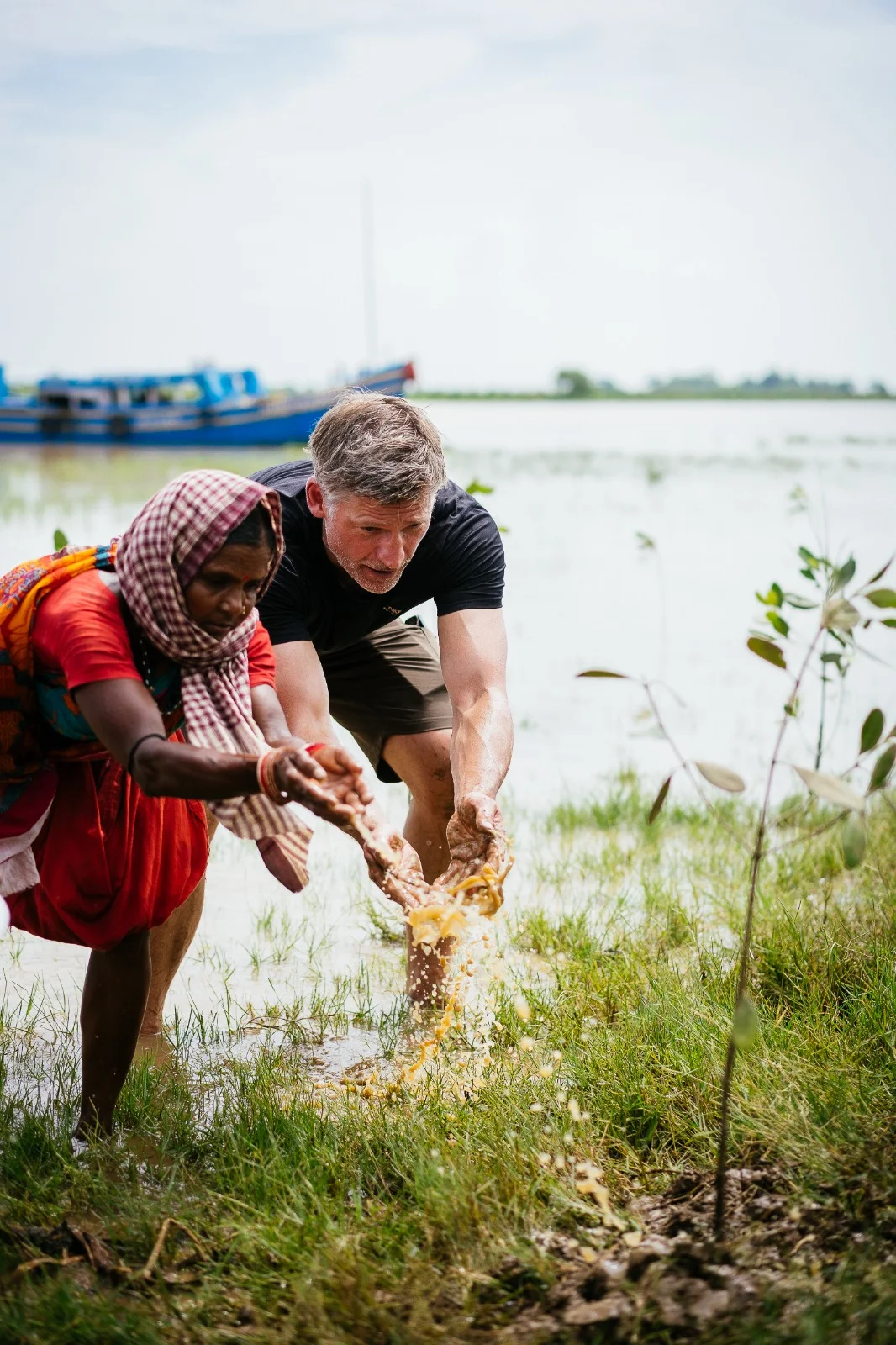October 24, 2025 – The second season of the acclaimed series ‘An Optimist’s Guide to the Planet’, hosted by United Nations Development Programme (UNDP) Goodwill Ambassador and ‘Game of Thrones’ star Nikolaj Coster-Waldau, premiered on Wednesday. It features the mangrove restoration work under the Enhancing Climate Resilience of India’s Coastal Communities (ECRICC) initiative in Odisha. ECRICC is a collaborative effort of the Green Climate Fund, the Ministry of Environment, Forest and Climate Change (MoEFCC), Government of India, and the Department of Forest, Environment and Climate Change, Government of Odisha, with implementation support from UNDP.
The opening episode, titled ‘Protect’, follows Coster-Waldau’s visit to Bagapatia village in Kendrapara district, where communities displaced by rising sea levels and coastal erosion are rebuilding their lives through climate-resilient practices. The episode captures how local women and men are restoring mangroves and safeguarding their coastline as part of the ECRICC project.
In the show, Coster-Waldau who is also a climate advocate, travels across continents, spotlighting communities creating practical solutions to environmental challenges. The Odisha segment, which begins around the 15-minute mark of the premiere, showcases the importance of community-led action. The episode also highlights stories from Denmark and Ecuador and weaves a global narrative of optimism and climate action.
The six-part series will air Wednesdays on Bloomberg Originals, available on major streaming platforms such as Amazon Prime Video, Samsung TV+, and LG channels. It will also air on Bloomberg TV and will be available on-demand on Bloomberg.com and YouTube.
About ECRICC: The Enhancing Climate Resilience of India’s Coastal Communities (2019–2027) initiative is a collaboration between the Green Climate Fund (GCF), the Ministry of Environment, Forest and Climate Change, Government of India, the Department of Forest, Environment and Climate Change, Government of Odisha, and the United Nations Development Programme (UNDP). It strengthens the ability of vulnerable coastal populations, particularly women, to cope with and adapt to climate change and extreme weather events, using an ecosystem-based and community-led approach. The project operates in Maharashtra, Andhra Pradesh, and Odisha. For more information, visit www.ecricc.org.
About UNDP India:
UNDP works in more than 170 countries and territories, helping to achieve the eradication of poverty and the reduction of inequalities and exclusion. In India, we work with the Government of India on localizing and accelerating the Sustainable Development Goals and promoting sustainable and inclusive growth, climate action, energy and environment and resilience and health system strengthening across all states and union territories.

